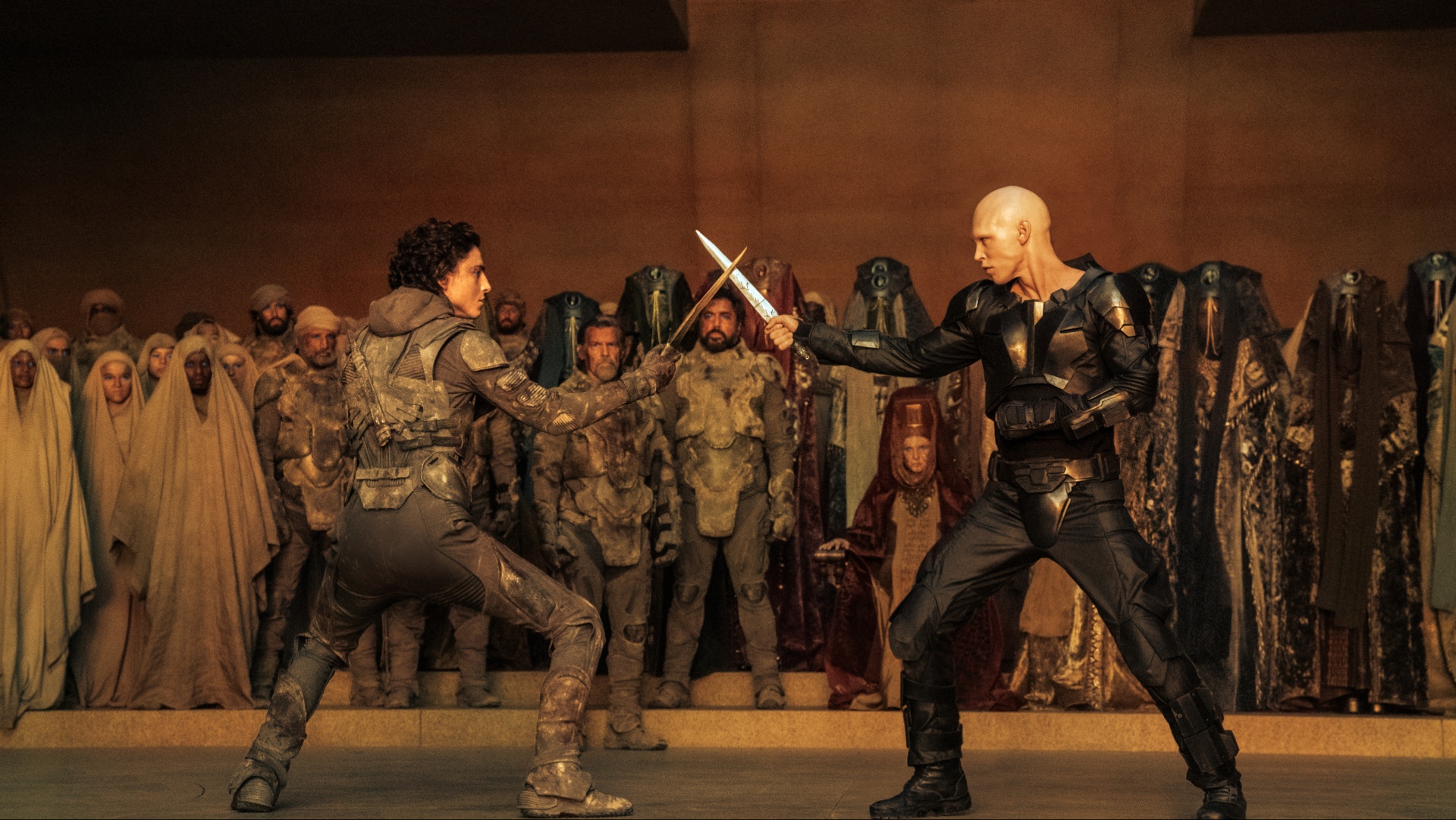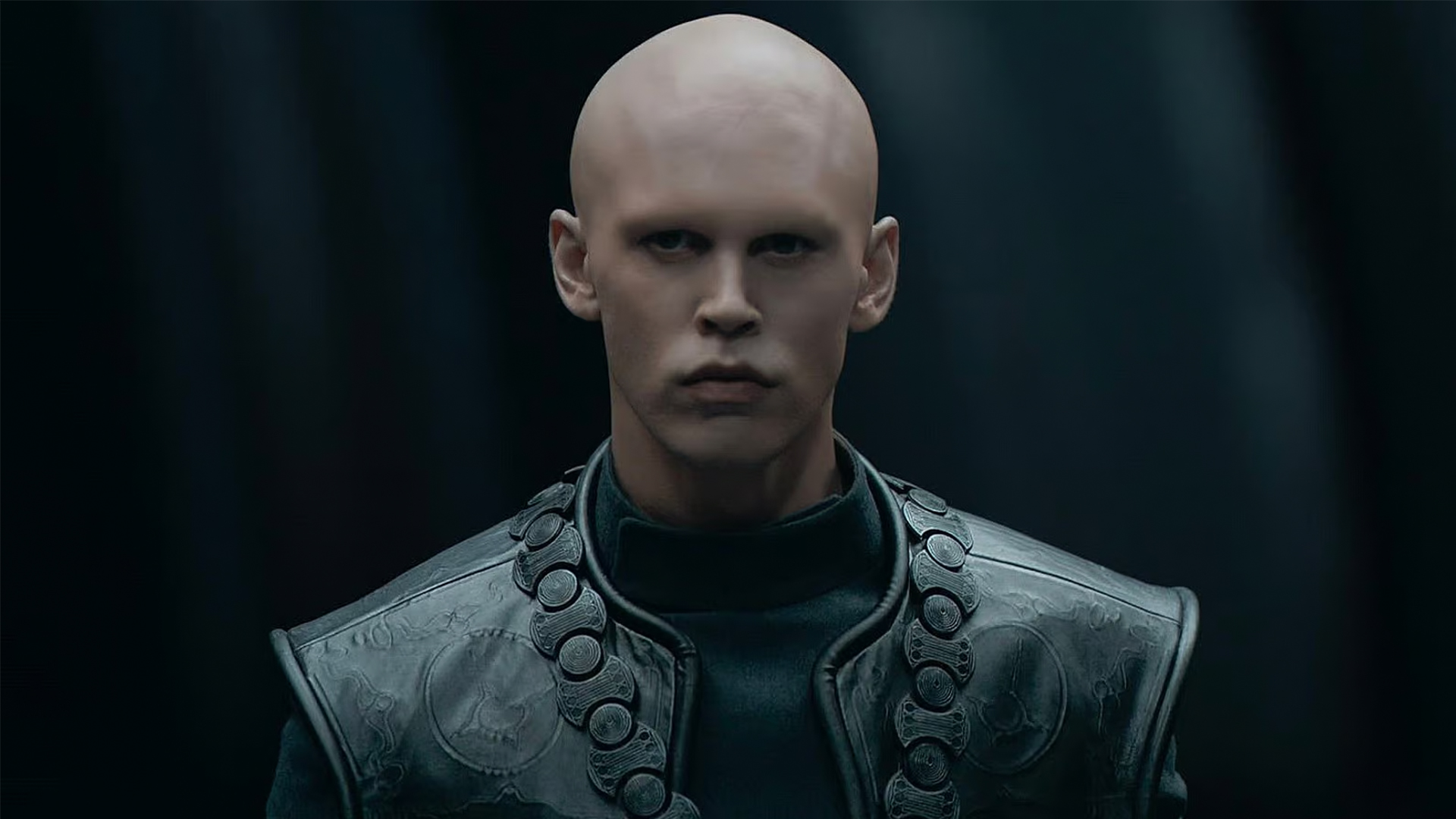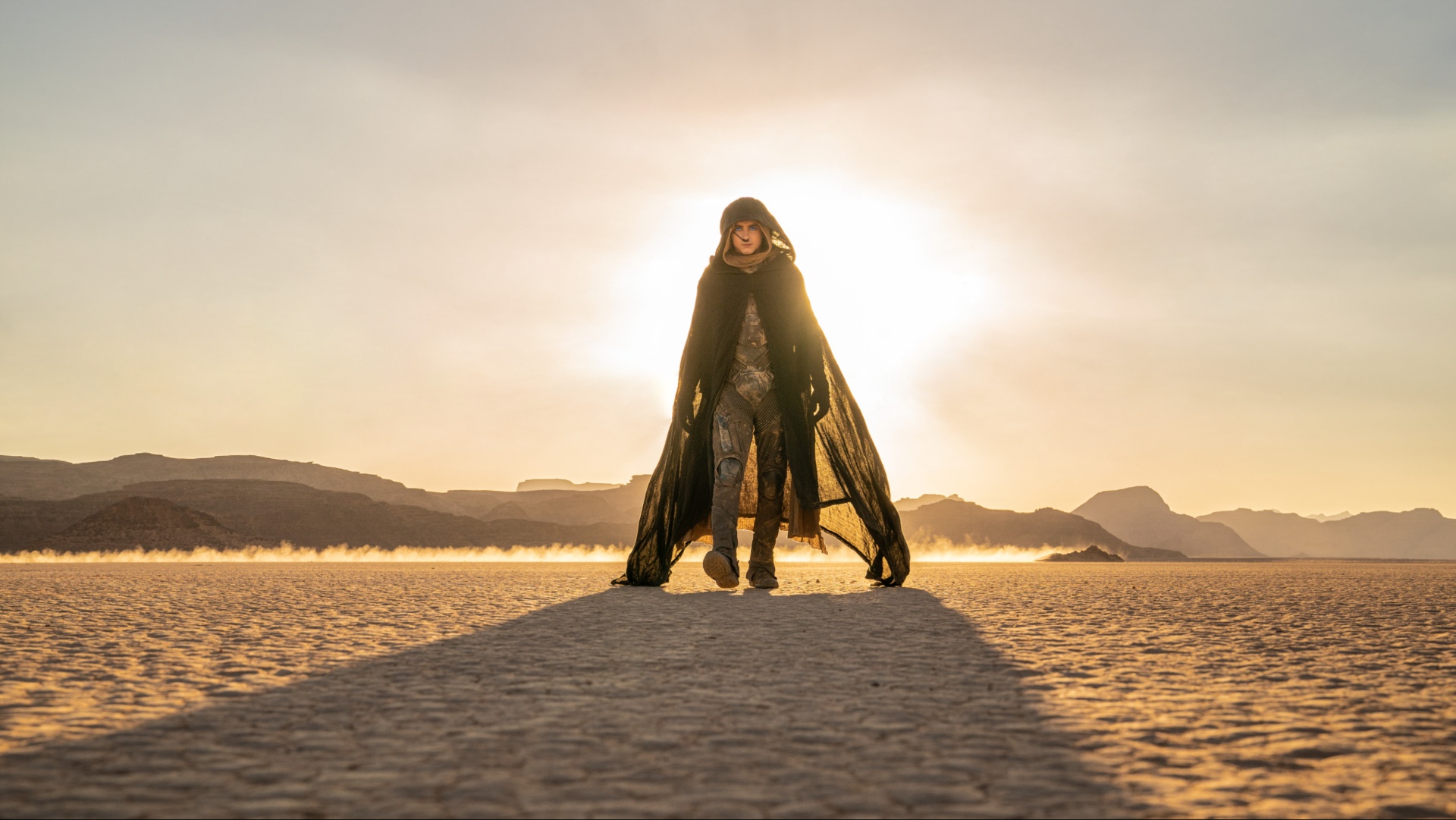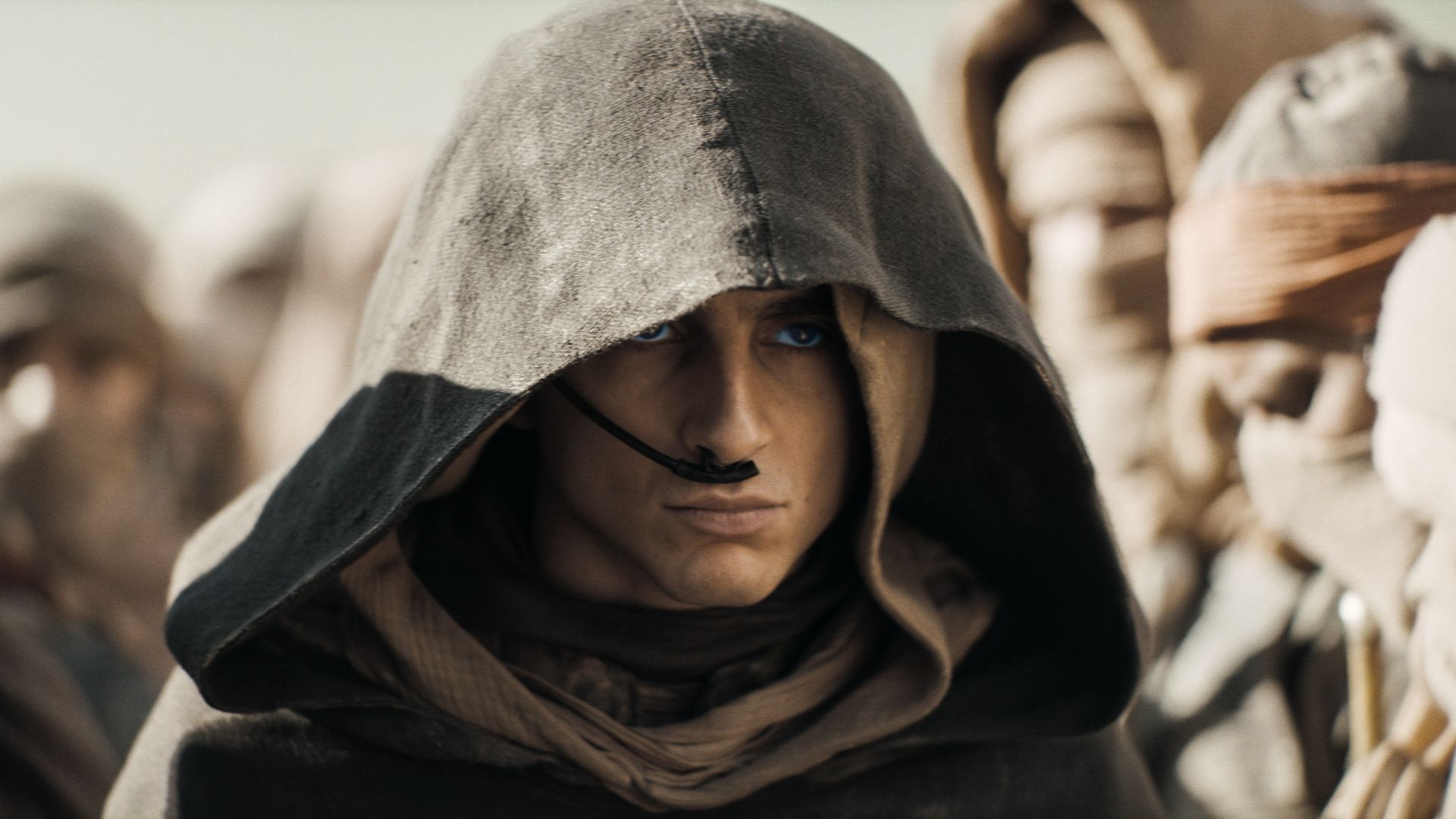
Arriving with the immense might of one of its sandworms, Dune 2 hasn’t just wowed us, it’s opened up new opportunities for sci-fi cinema. Smartly written, carefully designed, and packing the most emotion of any Denis Villeneuve film, Part Two concludes the French-Canadian director’s adaptation of Frank Herbert’s iconic 1965 novel with the inventive, explosive energy that it deserves. It’s got us thinking that more difficult, lore-heavy, and cerebral sci-fi classics will now make it to the big screen.
But it wasn’t an easy road getting Dune: Part Two to us. Audiences may not be aware how unlikely it is for a vision-led $190 million blockbuster like it to be made – Villeneuve’s passion for the often deemed “unfilmable” novel had to wait until he had built studio confidence over the last ten years. He had to convince them that there would actually be an audience to watch the film, and that it would only work in two 2.5 hour parts that he had full creative control over.
Another galaxy

But even though Villeneuve had a reputation for stunning sci-fi - and it turned out that audiences were hungry for 5 hours of spiritual and political stories on Arrakis - the director faced another huge obstacle. As a sci-fi classic, the novel Dune is so beloved and influential that film and television have been borrowing its designs and motifs for nearly 60 years. And in a climate where Star Wars and Star Trek have been titans for decades, Dune needed to work overtime to feel original after the sci-fi genre had cribbed its most inventive ideas.
Think about it: Arrakis is a sparse desert planet like Tatooine, the Harkonnens are a brutal clan oppressing native planets like the Empire. There’s a shadowy, shifting power hierarchy just like throughout the Skywalker Saga. The Bene Gesserit command superhuman abilities through intense, meditative training just like the Jedi, Paul is able to wield these powers stronger than anyone, and like the original trilogy’s hero, is a hidden descendant of nobility who wants to avenge his father. He even has the 'normal first name + space surname' combination of Luke Skywalker.
The spaceships, the faster-than-light travel, the rebel forces – even if George Lucas didn’t lift directly from Herbert’s classic, the sheer size of Dune around the time he was crafting his galactic adventures meant that the book’s big, sandy concepts were popular and appealing. Dune’s un-adaptability likely contributed to it being looted over the years – if it’s unlikely it’ll ever faithfully make it to screens, what’s the harm in nicking elements for more accessible films?
Another frontier

What about Star Trek? The long-running franchise debuted just a year after Dune was published, meaning it was maybe too soon for Herbert's work to be an influence on Gene Roddenberry’s vision. Even in concept, Dune and Trek are at odds – Herbert was interested in empire and abuses of power, Trek wanted to map out a utopian, non-spiritual galaxy where diplomacy and logic prevailed. But there are 900 episodes of Star Trek, and the show has reinvented itself many times over the years – one of the joys of it is that the small-scale, episodic nature of the exploration show means that classic sci-fi concepts can be visited in bite-sized form and fleshed out on a rolling basis.
There would likely be no Vulcans or Klingon Empire without Dune so carefully exploring the various cultures feuding for Arrakis, nor would there be Cardassians in spin-off series Deep Space Nine without the similarly-fascist and angularly-designed Harkonnens. The Dominion Empire, led by the mysterious Changelings, feels similar to the ambitious designs of the Bene Gesserit, and every episode where '90s effects introduce us to a living planet or solar entity feels right out of the playbook of Herbert’s eco-science-fiction. Unlike Star Wars, both Dune and Star Trek are serious, scientifically-minded sci-fi, genuinely interested in speculating on what a futuristic, inter-planetary society would look like. If that’s not enough, multiple actors have appeared in both series – Babs Olusanmokun as Janis in Dune: Part One and Doctor M’Benga in Strange New Worlds, and Patrick Stewart as Gurney Hallack in David Lynch’s Dune and Trek’s legendary Jean-Luc Picard.
Changing the game

Do you remember John Carter and Valerian and the City of a Thousand Planets? We don’t blame you if you don’t, they were massive flops. One of the reasons why they failed to connect to audiences was that, despite adapting some of the most defining space operas in the genre, every iconic sci-fi film had already done more interesting things with its story and ideas. These films weren’t creative enough to stop us from returning to our favorite Star Wars movies, and for Dune to cause massive waves, Villeneuve had to focus on what set Herbert’s story apart from the mega-franchises that rule audiences’ perception of the genre.
This means Dune: Part Two is a much more spiritual film than Star Wars, and more aggressive with its in-world politics than the diplomacy of Star Trek’s Federation. Villeneuve is expressive with visions, and undermines whole religions as the meddling plots of powerful nun-witches. “Chosen One” prophecies aren’t gladly accepted, but undermined by being both fake and powerful, as long as people believe them fiercely enough. The battle for power on Arrakis is not as simple as Star Wars’ good vs. evil, and Paul’s ascendancy to power is not as cleanly plotted as Anakin’s fall to the Dark Side.
And when the film adapts the novel’s climactic scene, where all those struggling for power on Arrakis gather in the Arrakeen palace and decide on the planet’s future, there is none of the calm, dependable logic that Picard and other Star Trek captains were known for. Unlike the Vulcans, the Fremen story is fuelled with emotion, the coup on the Harkonnens has a righteousness that, as Chani realises, has clouded Paul’s quest for justice. It’s more Game of Thrones than the final frontier – with deeply set politics that have to be accepted rather than challenged.
Forging a new path

By not softening what made Dune so unappealing to filmmakers over the years, Villeneuve has made an uncompromised adaptation of a book that has been plundered countless times by other visionaries over the years. What makes Part Two so thrilling is that he is mainly interested in what hasn’t been nicked by Star Wars and others – not the tropes and world-building in isolation, but how they feel electrified and complicated through characters, politics, and themes. It wasn’t that Star Wars and Star Trek stole from Dune, but that they stole elements in a simplified form – only by returning them to their original complicated depth can Dune feel fresh.
Part Two opens the door for sci-fi classics that have always been viewed as unadaptable or outdated – any story can feel fresh if you don’t view its dense nature as an obstacle to work around, but something a filmmaker thinks an audience will respond to. In terms of challenging adaptations, the sleeper has most definitely been awakened – Dune: Part Two has forged a new path for sci-fi cinema to elevate familiar stories into something no-one has seen or felt before.
Dune: Part Two is out now in theaters worldwide. For more, check out the rest of our coverage on the movie:
- Director Denis Villeneuve on comparisons to The Empire Strikes Back
- Director Denis Villeneuve on Timothee Chalamet’s transformative performance
- Zendaya and Florence Pugh discuss the women of Dune 2
- Zendaya discusses Chani’s personal journey in Dune 2
- Actor Stellan Skarsgard on playing the villain
- Actor Stellan Skarsgard on working with Austin Butler
- Who does Anya Taylor-Joy play in Dune 2?
- The Dune 2 and book differences
- When will Dune 2 be on streaming?
- What could happen in Dune 3, according to the books
- Does Dune 2 have a post-credits scene?
- Dune 2 ending explained
- How Dune 2 brings motherhood into the focus in a powerful way







